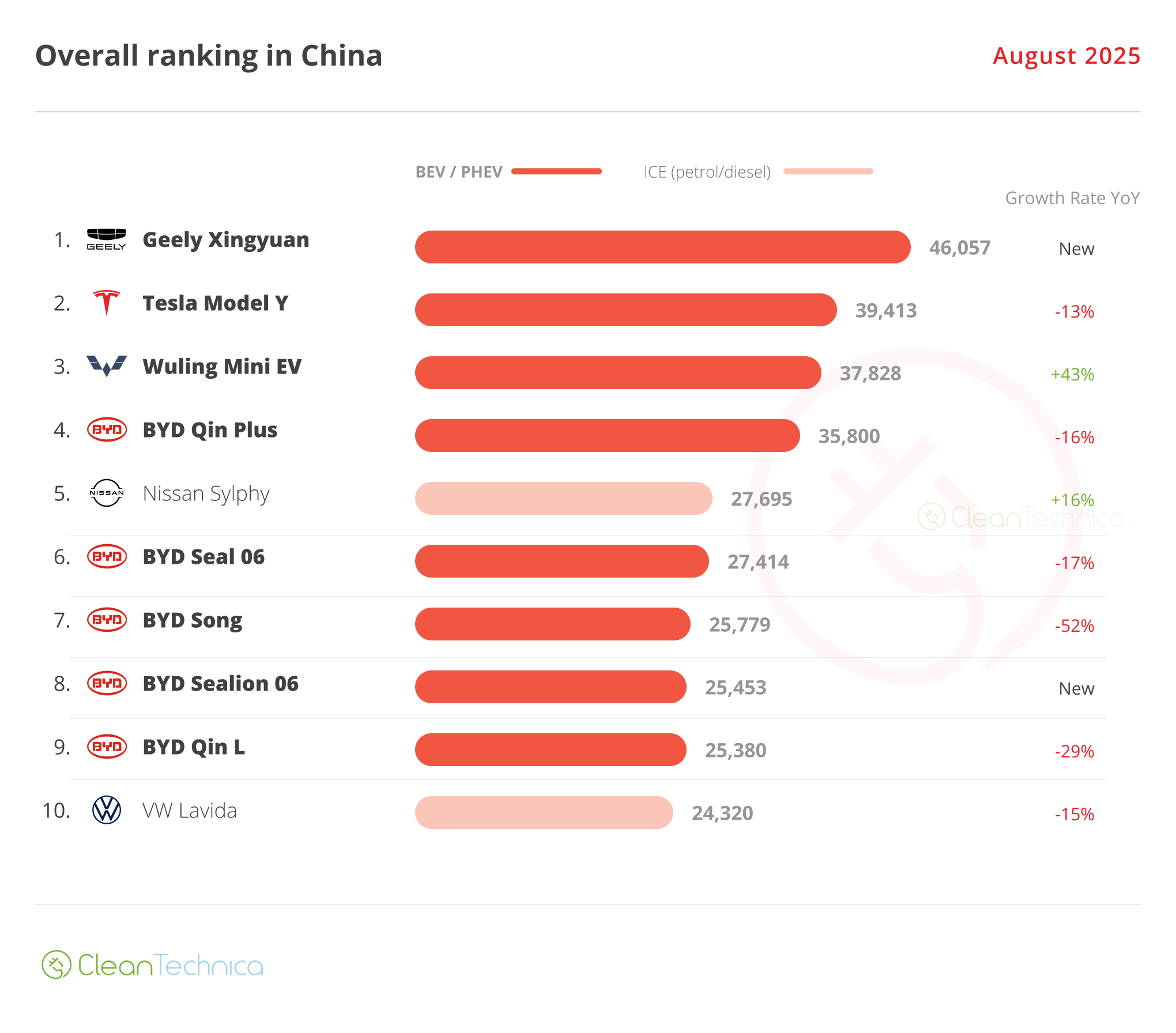Sign up for daily news updates from CleanTechnica on email. Or follow us on Google News!
It seems like these days, popular ideas always come in two flavors. There’s the left flavor and the right flavor, or whatever you want to call it. Allegiance to one’s political tribe demands that we toe every line or risk becoming politically homeless. On EVs, the two prevailing opinions I keep seeing are one of these two:
- All ICE vehicles must be banned ASAP.
- EVs are terrible and we should discourage people from buying them (and maybe ban them if we can get people to ignore free market ideals for a bit).
There are, of course many other opinions out there, and this is an oversimplification, but these seem to dominate the discussion. Because I’ve been politically homeless since 2007, I am unafraid to stake out a third position that will probably upset the proponents of both of the above, and defend my idea.
EVs Will Dominate 90%+ Of The Market Without Bans
My main reason for thinking that EVs will thrive and dominate most of the market without government banning ICE vehicles is simple dollars and cents. Obviously, not all car buying decisions are rational (and I’ll come back to that in a minute), but when there’s an EV in every segment for a similar price compared to an ICE vehicle, decisions will have to be made.
One big factor is maintenance. Regular oil changes, tune ups, water pumps, timing belts, accessory belts, brake jobs, and fill-flush jobs can nickel and dime you to death even in an economy car. Add in things that break unexpectedly, and owning a car can become a crushing financial ball and chain in a person’s life. When they find out that the EV still needs maintenance, but doesn’t need nearly as much maintenance, that’s going to make people think long and hard about what vehicle to choose.
Powering the thing is another area where EVs often win. Charging a car at home is often between one quarter and one third the price of gasoline. When the average person only drives a couple dozen miles on the average day and only rarely drives out of range of home, the choice is pretty clear. While people may care about a car having “soul”, few care whether their Nissan Altima or Chevy Trax makes a wimpy rumbling sound between lights if it means spending 3-4x more on fuel (assuming the cost of the vehicle is similar, and that’s starting to happen).
There’s also a lot of fun to be had with an electric motor. Maximum torque and horsepower numbers don’t really tell you much about what it feels like to take off from a light and stomp that skinny pedal. Car enthusiasts know that you have to see a torque curve to know what kind of low-end torque a vehicle has and how quickly the engine can make that torque. Then, you have to consider things like gearing. But, in an EV, you know right away on the first test drive that there’s some serious shake and bake happening with that torque production, starting at zero RPM.
All things being equal, few people will want something else for their daily driver, work truck, or delivery machine.
The Things That Aren’t Equal (Yet)
There are, of course, economic and practical obstacles in the way of making an EV the obvious winner for every commuter, fleet manager, and commercial driver. Charging infrastructure needs a LOT of work to be ready for a higher volume of EV drivers. People living in apartments and houses without a driveway need a way to plug in. Many EVs are still significantly more expensive than a comparable ICE vehicle, even after point-of-sale tax credits.
If anything, it would be a terrible idea to start banning ICE vehicles or making them prohibitively expensive to purchase without addressing obstacles like those above. But, address them, and the competitive advantages I discussed further up come into play and make it unnecessary to do a ban or heavy tax on ICE vehicles.
The Hold-Outs Don’t Really Matter, Environmentally Speaking
If nearly all commuter cars, local delivery vehicles, over-the-road trucks, rideshare, and fleet vehicles are replaced with EVs in the next 10-15 years, that’s almost everything. The only remaining vehicles would be enthusiast cars, classic cars, racing vehicles, larger RVs, and a few other niche vehicles where ICE is still desirable, has sentimental value, nostalgia value, or makes practical sense. I seriously doubt this is more than 5% of vehicles on the road.
The impact of these few holdouts really doesn’t amount to much. Sure, the classic cars that aren’t subject to emissions testing in most places are dirtier and produce a lot more CO2, but when there are so few of them and they tend to mostly be driven on the weekends, it just doesn’t add up to a serious problem. Doing things like replacing gas-powered leaf blowers with battery-powered gear makes a much bigger difference.
Hurting The Holdouts Hurts EVs For No Reason
Being purists and demanding that all ICE vehicles, or even all new ICE vehicles, go away does come at a cost. These few holdouts who wouldn’t produce much in the way of emissions tend to be passionate people. They care more about their vehicle than someone who’s just driving to work and back. If you ban their car or make them pay a tax to enjoy it, they will become very politically engaged and they won’t stop until heads roll (hopefully metaphorically speaking).
Instead of upsetting that crowd for no real benefit, we should instead focus on making EVs easier for everyone else to get into. Better pricing, better infrastructure, better home charging for people without a garage or driveway, and incentives in the short term can do a lot more good for EVs than pushing a strict ban can. At the very minimum, any ban that is enacted should include exceptions for niche vehicles, classics, enthusiast cars, and cases where it can be shown that an EV is still a poor choice.
Featured Image: Normal Rockwell’s Freedom of Speech painting, which has become a popular internet meme of sorts in recent years. (Fair Use)

Chip in a few dollars a month to help support independent cleantech coverage that helps to accelerate the cleantech revolution!
Have a tip for CleanTechnica? Want to advertise? Want to suggest a guest for our CleanTech Talk podcast? Contact us here.
CleanTechnica uses affiliate links. See our policy here.
CleanTechnica’s Comment Policy




